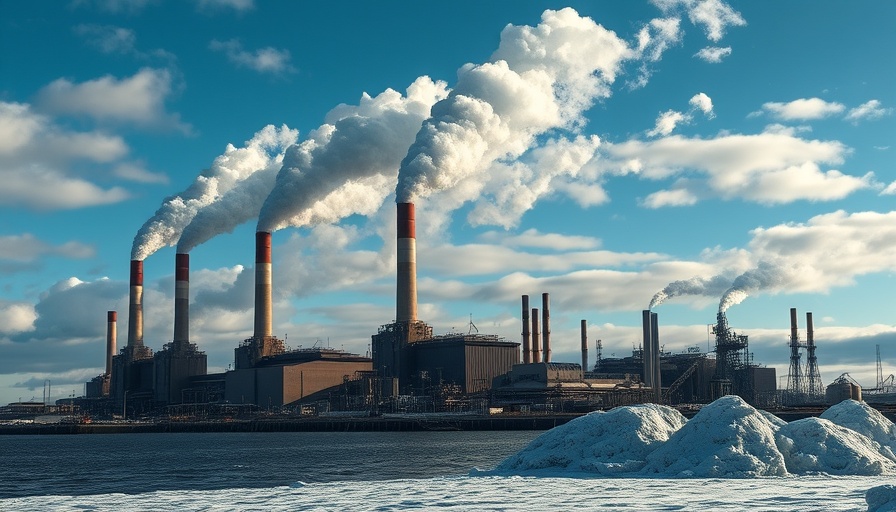
The Cost of Climate Inaction: Understanding the $28 Trillion Damage
A recent study from Dartmouth College reveals that 111 major corporations, primarily fossil fuel producers, have been responsible for an astounding $28 trillion in climate-related damage. This eye-opening figure highlights a critical consequence of fossil fuel emissions that has profound implications for businesses and policymakers alike.
Breaking Down the $28 Trillion Figure
This staggering amount, equivalent to nearly the entire economic output of the United States in 2024, raises urgent questions about corporate accountability in combating climate change. The research identified that over half of this financial fallout can be attributed to just ten companies, including ExxonMobil, BP, and Saudi Aramco. For instance, both Gazprom and Saudi Aramco alone have collectively caused over $4 trillion in damage from heat-related effects, prompting serious discussions on how to hold these companies financially accountable.
Research Methodology: How Emissions Translate to Damage
To achieve these findings, researchers employed advanced empirical climate economics and peer-reviewed attribution methods linking specific emissions from fossil fuel companies to measurable damage caused by extreme heat. Calculating that for every 1% of greenhouse gas emissions injected into the atmosphere since 1990, approximately $502 billion in heat damage was inflicted—which notably excludes other extreme weather events like hurricanes and floods—underscores the urgent need for regulatory scrutiny.
The Accountability Movement: Can Companies Be Held Financially Responsible?
As highlighted in the research, there have been 68 climate damage lawsuits initiated globally, with half concentrated in the United States, emphasizing the rise of the accountability movement. Co-author Justin Mankin noted the interest in tracing climate hazards back to specific emitters, asserting that it is indeed feasible to establish these linkages. This discovery not only serves as a foundation for old claims but also propels new strategies in the legal landscape and inspires future lawsuits against major polluters.
Embracing Opportunities: Shifting Towards Sustainable Practices
While the damages outlined in this study present a bleak picture, they also serve as a call to action for both companies and consumers to embrace more sustainable practices. The transition away from fossil fuels toward renewable energy sources can mitigate such extensive damages in the long run. Businesses are increasingly recognizing that aligning their operations with sustainable practices isn’t just ethical; it is crucial for long-term survival in a world that is beginning to demand accountability.
The Future of Environmental Accountability: Legal and Social Implications
The implications of this study go beyond reduced damages; they herald a shift in how society and the legal system hold businesses accountable for their environmental impact. Individuals, communities, and governments are expected to increasingly leverage these findings in developing policies that require corporations to disclose their emissions and contribute to climate mitigation funds.
With climate change remaining a pressing issue, the dialogue surrounding corporate accountability will only grow. The lessons gleaned from this study can guide future actions, encouraging both individual and collective efforts toward a sustainable future.
 Add Row
Add Row  Add
Add 




Write A Comment